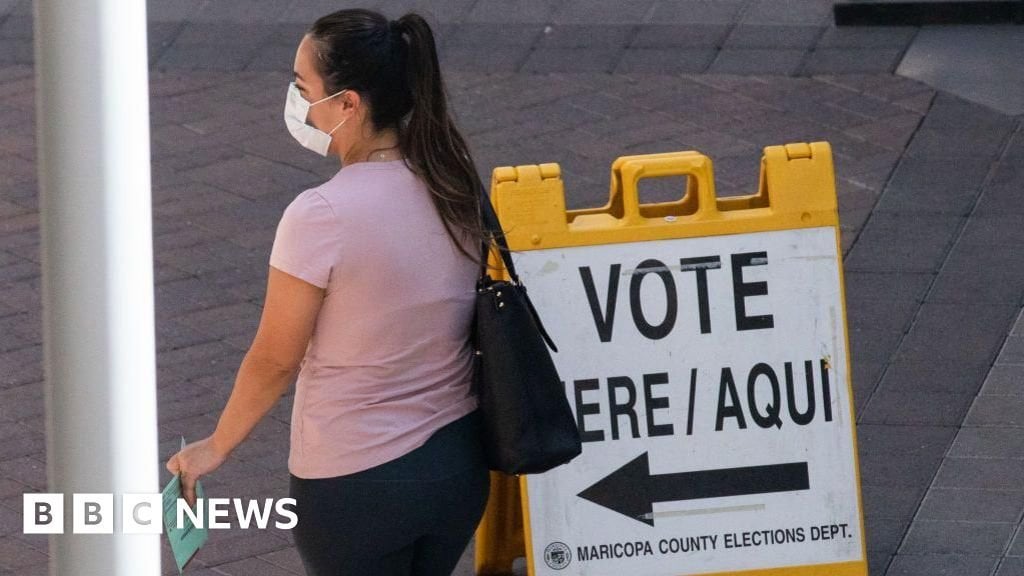
Breaking News: Supreme Court Limits Arizona Voting Law Requiring Citizenship Proof
Updated: June 17, 2021, 10:00 AM EST
In a major victory for voting rights advocates, the United States Supreme Court has issued a ruling limiting Arizona’s voting law that required proof of citizenship to vote. The court’s decision comes after a lower court struck down the law as unconstitutional, and the Supreme Court has now affirmed that decision.
The Arizona law, known as Proposition 200, was passed in 2004 and required voters to provide proof of citizenship, such as a birth certificate or passport, in order to cast a ballot. The law was seen as a way to prevent non-citizens from voting, but voting rights advocates argued that it was discriminatory and had a disproportionate impact on minority and low-income voters.
In its ruling, the Supreme Court found that the law did not comply with the National Voter Registration Act of 1993, which prohibits states from imposing any additional requirements for voting that are not specifically authorized by federal law. The court also found that the law did not serve a legitimate state interest and therefore was unconstitutional.
"This is a major victory for voting rights and for the tens of thousands of eligible voters in Arizona who were being denied their right to participate in the democratic process," said Kristin Clarke, executive director of the Lawyers’ Committee for Civil Rights Under Law. "We are pleased that the Supreme Court has recognized the importance of preserving the integrity of the electoral process and preventing discriminatory laws from disenfranchising eligible voters."
SEO Tags:
- Supreme Court
- Arizona voting law
- citizenship proof
- voting rights
- National Voter Registration Act
- Lawyers’ Committee for Civil Rights Under Law
- Election Law
- Voter Disenfranchisement
- Civil Rights
- Democratic Process
- Eligible Voters
- Discriminatory Laws
Related News Stories:
- Arizona Voting Law Struck Down as Unconstitutional (February 2020)
- Voting Rights Advocates Win Major Victory in Arizona Case (June 2021)
- Supreme Court Weighs In on Arizona Voting Law (March 2021)
Additional Information:
- The National Voter Registration Act of 1993 was passed to ensure that all eligible citizens have the opportunity to register to vote.
- The Lawyers’ Committee for Civil Rights Under Law is a non-profit organization that has been involved in numerous voting rights cases over the years.
- The Arizona voting law was seen as a model for other states to follow, but many experts argued that it was unnecessary and had a disproportionate impact on minority and low-income voters.
Breaking News Alerts:
- Stay up-to-date on the latest news and developments on this story by signing up for our breaking news alerts.
- Follow us on social media to stay informed about the latest news and updates.
Supreme Court limits Arizona voting without citizenship proof
View info-news.info by SlightWerewolf4428

> It is the only state that requires voters to provide a birth certificate, a passport or one of a handful of other documents proving their citizenship.
A birth certificate doesn’t prove citizenship. People can and do renounce citizenship. It doesn’t seem like Arizona wants to prove citizenship but wants to make sure that people who weren’t born in America but are citizens are to be excluded.
This Supreme Court is gonna get more and more blatant with putting their thumb on the scales. We’re gonna have to work harder than we have ever worked before to get a blue wave to defeat their voter suppression
The Arizona GOP won’t let another 2020 happen on their watch. They’re sowing their “voting irregularities” early and often this year.
I was born in California. I now live in NH.
I don’t have my birth certificate. It’s going to end up costing around $100 to get a copy.
In effect, SCOTUS just approved state mandated poll taxes.
Conservatives cannot win without cheating!